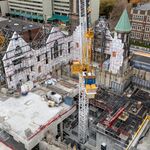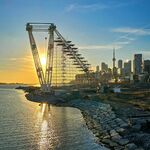lead82
Senior Member
That would be a substantial improvement. The problem with HSR is there is a very weak business case for it. This reminds me of Blue22, aka UPX. It was claimed to be built and operated by private sector for a profit. There was supposed to be a huge market... Fast forward and the UPX is nothing more than a subsidized express service to YYZ. HSR will be a massive white elephant.
Why spend so much money to build infrastructure that will serve such a small market. No one has yet answered the question of how will customers get to the stations and is there enough demand for a high prices HSR service between London and Toronto. Certainly there is some demand but how much of it is between the central cities as opposed to general demand between the regions. Regional demand is not easy to serve with rail. I don't see enough downtown London/Kitchener/Toronto traffic to warrant HSR. Especially if it means we only run a handful of trains a day. This is the current problem with VIA... The service levels suck! With the handful of trains a day one cannot use it reliably to get around. Travel time is important but service levels more so. Ontario and Canada should be focused on improving service levels today and building infrastructure to support say having a regular VIA train running hourly in each direction. That would eliminate the need for connecting flights in YYZ of the route stopped near YYZ.
Why spend so much money to build infrastructure that will serve such a small market. No one has yet answered the question of how will customers get to the stations and is there enough demand for a high prices HSR service between London and Toronto. Certainly there is some demand but how much of it is between the central cities as opposed to general demand between the regions. Regional demand is not easy to serve with rail. I don't see enough downtown London/Kitchener/Toronto traffic to warrant HSR. Especially if it means we only run a handful of trains a day. This is the current problem with VIA... The service levels suck! With the handful of trains a day one cannot use it reliably to get around. Travel time is important but service levels more so. Ontario and Canada should be focused on improving service levels today and building infrastructure to support say having a regular VIA train running hourly in each direction. That would eliminate the need for connecting flights in YYZ of the route stopped near YYZ.





